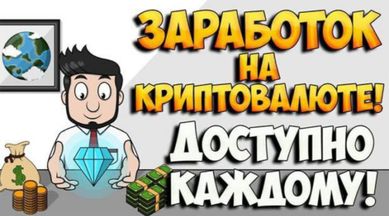A16z Leads $15M Round for Game Studio Roboto Games

Roboto Games, a new game studio aiming to bridge Web2 experience and accessible Web3 in-game elements, has raised $15 million in a Series A funding round led by noted venture capital firm Andreessen Horowitz (a16z), which launched its first game-focused fund in May with a $600 million commitment. The round shows that funding continues to trickle into crypto sectors despite the global bear market and the recent implosion of crypto exchange FTX and its continuing aftermath.
The funding will go toward building out the company’s second game and hiring across a variety of roles, including artists and marketers, Roboto Games founders Curt Bererton and Mathilde Pignol told CoinDesk in an interview. Other participants in the round included Ancient8, Animoca Brands, Gumi Cryptos Capital, Harrison Metal Capital, Makers Fund, Merit Circle, Transcend and a number of angel investors. Total funding now stands at $19.5 million to date, including a 2019 seed round.
Headquartered in San Mateo, Calif., Roboto Games aims to make free-to-play games that are playable across web, mobile and PC and can be played with or without Web3 elements such as non-fungible tokens (NFTs) – or in-game elements coded to prove their uniqueness – or regular tokens. There are also plans for a user-generated content (UGC) platform.
Roboto Games has already released the fast-moving battle game Last Mage Standing, which has a few million players, according to Bererton. However, the team is primarily focused on the development of a survival/crafting massively multiplayer online (MMO) game that’s codenamed Foragers and Fighters with plans to launch an initial playable version of the game in the first quarter of 2023, The game – described as Minecraft meets Genshin Impact – will feature character collection and asset crafting aspects but will initially lack Web3 elements by design.
“We want to make sure that we have the game core solidified and it’s working well and it’s really fun first before we launch any sort of NFTs or tokens associated with the project,” explained Bererton. “Because, for example, if we change a big aspect of the game, we don’t want those NFTs to be invalidated by some design change that we make.”
In 2007, the team behind Roboto Games created ZipZapPlay, which made 20 social Facebook games including Baking Life and a UGC platform with over 200,000 games on it. They sold the company to PopCap a few months before Electronic Arts acquired PopCap in July 2011.
The free-to-play games made by ZipZapPlay require actively managed servers, which eventually went offline and made the games unplayable. Roboto Games therefore sees blockchain technology as a way to prevent future game deaths. If a Roboto game one day shuts down, the team could simply turn the code over to the players to continue on, noted Pignol.
“Something that I think is not covered a lot in Web3 media is the permanence of the data behind the blockchain, and what that can allow you to do,” said Bererton.
Read more: The Gaming Industry Doesn’t Need Web3, but Gamers Might







 Bitcoin
Bitcoin  Ethereum
Ethereum  Tether
Tether  Dogecoin
Dogecoin  USDC
USDC  Cardano
Cardano  TRON
TRON  Bitcoin Cash
Bitcoin Cash  Chainlink
Chainlink  Litecoin
Litecoin  LEO Token
LEO Token  Stellar
Stellar  Cronos
Cronos  Ethereum Classic
Ethereum Classic  Hedera
Hedera  Dai
Dai  Stacks
Stacks  Monero
Monero  OKB
OKB  Cosmos Hub
Cosmos Hub  Algorand
Algorand  Theta Network
Theta Network  Maker
Maker  KuCoin
KuCoin  Gate
Gate  Polygon
Polygon  NEO
NEO  Tezos
Tezos  Zcash
Zcash  Tether Gold
Tether Gold  IOTA
IOTA  Bitcoin Gold
Bitcoin Gold  Synthetix Network
Synthetix Network  TrueUSD
TrueUSD  Zilliqa
Zilliqa  Holo
Holo  Dash
Dash  0x Protocol
0x Protocol  Qtum
Qtum  Enjin Coin
Enjin Coin  Siacoin
Siacoin  Ravencoin
Ravencoin  Basic Attention
Basic Attention  Decred
Decred  Ontology
Ontology  NEM
NEM  Lisk
Lisk  Status
Status  DigiByte
DigiByte  Waves
Waves  Nano
Nano  Numeraire
Numeraire  Hive
Hive  Pax Dollar
Pax Dollar  Steem
Steem  Huobi
Huobi  BUSD
BUSD  OMG Network
OMG Network  Ren
Ren  Bitcoin Diamond
Bitcoin Diamond  Bytom
Bytom  Kyber Network Crystal Legacy
Kyber Network Crystal Legacy